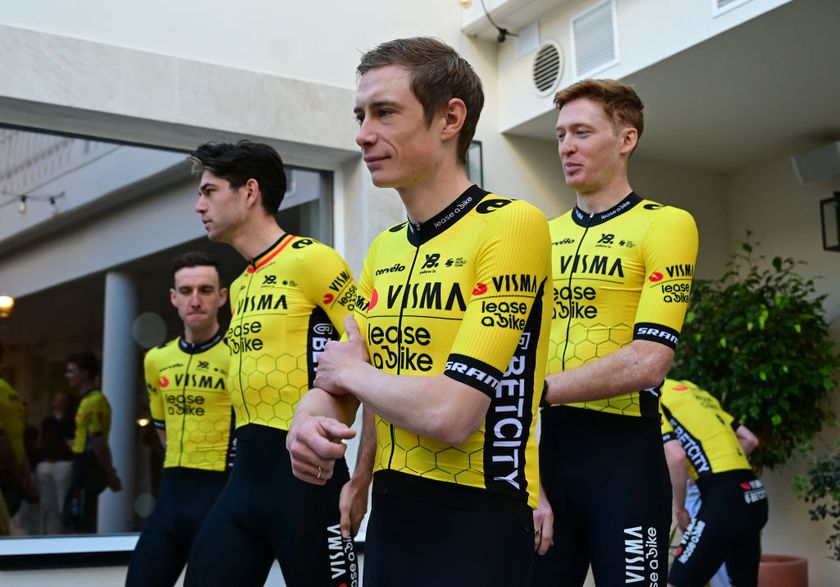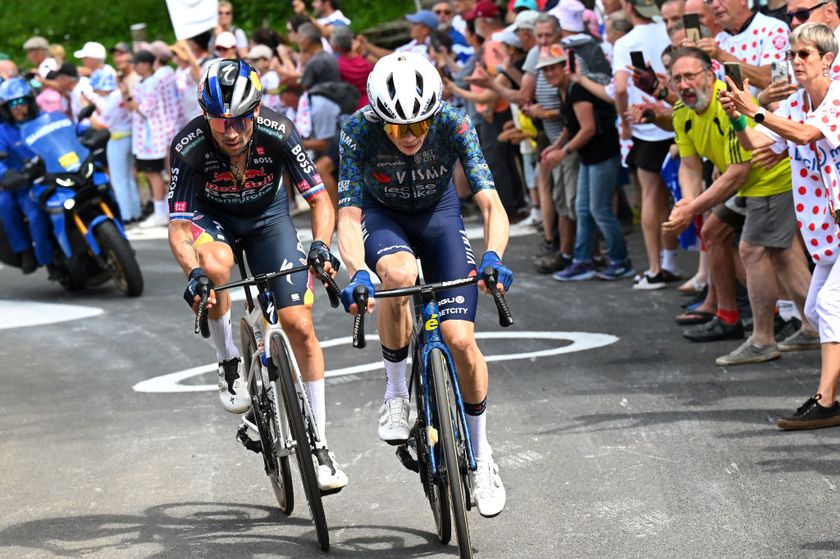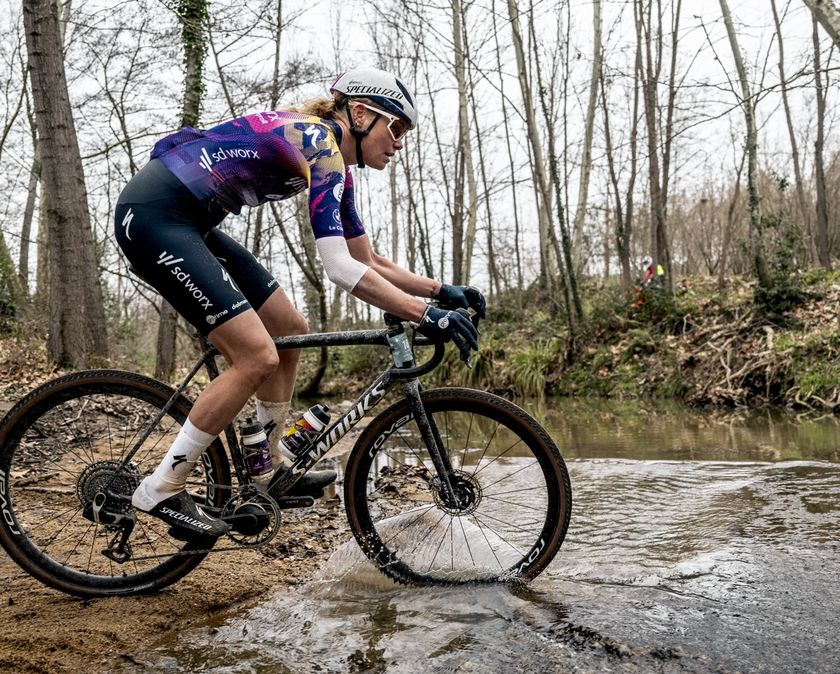Double win for late Giro debutant Paolini
Katusha veteran takes stage and overall lead






At 36 years of age and in the twilight of a career that has stretched through one of the most turbulent periods in Italian cycling history, Luca Paolini (Katusha) is an unlikely Giro d'Italia debutant, but in his maiden corsa rosa the veteran hit the jackpot by claiming stage victory and the overall lead in Marina di Ascea at the end of stage 3.
The canny Paolini was careful to follow the attacks but not contribute to them during the sinuous finale to Monday's stage, keeping a watching brief as Ryder Hesjedal (Garmin-Sharp) and Vincenzo Nibali's Astana squad went on the offensive over the climb of Sella di Catona.
Instead, Paolini waited for the calm after the storm, and when the lull arrived, he chose his moment perfectly, clipping off the front on the descent with a shade under seven kilometres still to race.
"I suffered a lot when they attacked on the climb, but every time someone tried to stretch it out, I kept my tempo and I kept my head," Paolini said. "It was like what I tried to do at Milan-San Remo this year, when I hung in there on the climbs and had a go on the descent.
"In the finale, they told me over the radio that I only had a few seconds on the chasers but I know I'm quite good descender and I managed to keep quite clear headed through the corners."
Paolini held off the chasers, led home by Cadel Evans (BMC), to claim the win. Given Katusha's solid showing in Sunday's team time trial, Paolini knew that the 20-second time bonus for stage victory would also present him with the maglia rosa. "I told myself that today and tomorrow would be like two big classics for me," he said. "On top of that, after the team time trial, I knew I was just 18 seconds down that a stage win would give me pink."
That double bounty had special significance for the Como native. On Monday, his father Giovanni was due to undergo surgery, and Paolini had promised him a special gift for when he came around afterwards.
Get The Leadout Newsletter
The latest race content, interviews, features, reviews and expert buying guides, direct to your inbox!
"My father had a big operation in the winter, today's was a more routine one but these are always delicate things," Paolini said. "I told him this morning that when he came to after the operation, I'd have a maglia rosa for him. I managed to speak with him after the stage, too, and it all went well."
Gregario
Paolini, who began his career as Paolo Bettini's gregario di fiducia and continues to this day as his regista in the Italian national team, has spent much of his career in the service of others. When opportunities have fallen his way – this year's Het Nieuwsblad apart – his resume has been made up of near misses: third in Milan-San Remo in 2003, third in the Verona Worlds in 2004, third in the Tour of Flanders in 2007.
"We're very close but my father always used to tell me that I was a fool for not winning as much as I could have done," Paolini smiled. "But honestly, I have no regrets, everything I've done, I've done with my heart. With Paolo, it was more than a job, it's a friendship. That Tour of Flanders was a bit of a regret alright, but at the same time, I came up against two stronger riders than me."
But how on earth did Paolini, who turned professional in 2000 with Mapei, go thirteen years as a professional without ever riding the Giro d'Italia?
"I was always in teams that wanted me to do the Tour or else I did the Vuelta to prepare for the Worlds, so I'm happy this year I got the nod to do the Giro," he said.
Another factor, of course, was his three-year hiatus at Pro Continental level with Acqua & Sapone, which came after he was implicated in the Operazione Athena doping investigation. That inquiry snared Eddy Mazzoleni and Ivan Basso's sister Elisa, but proceedings against Paolini were eventually dropped in 2011 due to a lack of evidence.
Asked if things were better for young Italian professionals now than when he stepped up to the highest level over a decade ago, Paolini agreed. "They have the fortune to find themselves in a cycling that is very well-equipped," he said. "Now cycling is based on the small details, and even at 23 or 24 years of age, you can express your potential fully."

Barry Ryan was Head of Features at Cyclingnews. He has covered professional cycling since 2010, reporting from the Tour de France, Giro d’Italia and events from Argentina to Japan. His writing has appeared in The Independent, Procycling and Cycling Plus. He is the author of The Ascent: Sean Kelly, Stephen Roche and the Rise of Irish Cycling’s Golden Generation, published by Gill Books.
Most Popular







